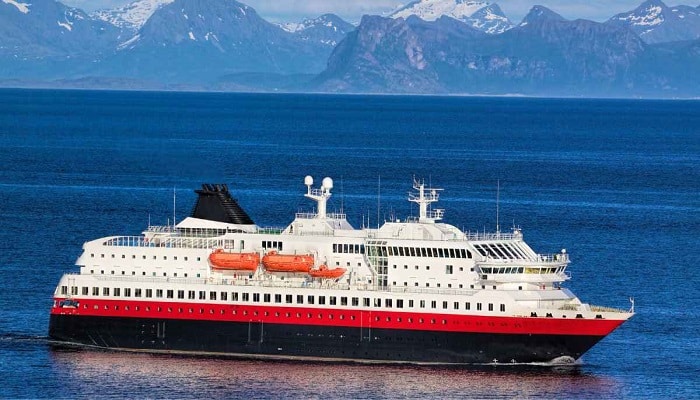

Hurtigruten Norway, a firm that is striving toward introducing its first-ever zero-emission vessel by 2030, has started a unique research assignment in collaboration with SINTEF as well as 12 maritime collaborators, per a press release.
This new consortium is enthusiastic about developing unique and clean solutions for passenger vessels of the future.


Based on advanced research, the collaborators aim at creating the most sustainable and energy-efficient cruise ships ever built by 2030.
The “Sea Zero” assignment has reportedly been awarded €7 million as public funding. It has an estimated budget of about €13 million going into the research and development phase dedicated to building pioneering solutions dedicated to energy efficiency, next-gen battery solutions, propulsion technology, sustainable building practices, hull design, and onboard hotel activities to bring energy use to a minimum.
The assignment reportedly builds on Hurtigruten’s 130-year heritage. It aims at developing zero-emission vessels, specifically adapted to the coast of Norway, with the first-ever ship likely to get delivered by 2030.
With only about 0.1% of vessels all over the world currently deploying zero-emission technology, Hurtigruten Norway’s assignment aims at having a significant effect on the cruise industry’s sustainability as well as the future of travel.
The research phase is going to last from 2023 to 2025, going into a new build assignment directly. The consortium aims at making the new vessels zero emission to air and sea, with a potential game-changer being a significant minimization of rapid energy consumption.
The aim is to come up with the most energy-efficient passenger vessel ever. The company is going to turn every stone to cut down energy use, wastes, and emissions, states Gerry Larsson-Fedde, Hurtigruten Norway’s SVP for Marine Operations.
Consumers will not continue accepting the usage of heavy fuel oil or climatic targets that are behind the Paris Agreement.
Zero-emission vessels are going to be the game-changer the industry seeks, explained Larsson-Fedde.
One of the primary areas of focus of the project is the onboard hotel activities, sometimes consuming 50% of the total energy use of the vessel. Coming up with new energy solutions for hotel operations will be critical to the success, as waste heat from engines is unavailable as a heat source, especially when batteries replace the conventional engines.
Sea Zero has the capability to impact the passenger and cruise transport industry by demonstrating and developing zero-emission vessels and also making upcoming green technologies and products accessible to a significantly large and global market.
The project’s value creation potential is regarding hundred million euros up to 2030, with a massive portion of the potential expected to be realized when Hurtigruten Norway finalizes the contract for a new building on the first-ever zero-emission vessel.
Reference: Cruise Industry News, Vard










We believe that knowledge is power, and we’re committed to empowering our readers with the information and resources they need to succeed in the merchant navy industry.
Whether you’re looking for advice on career planning, news and analysis, or just want to connect with other aspiring merchant navy applicants, The Marine Learners is the place to be.